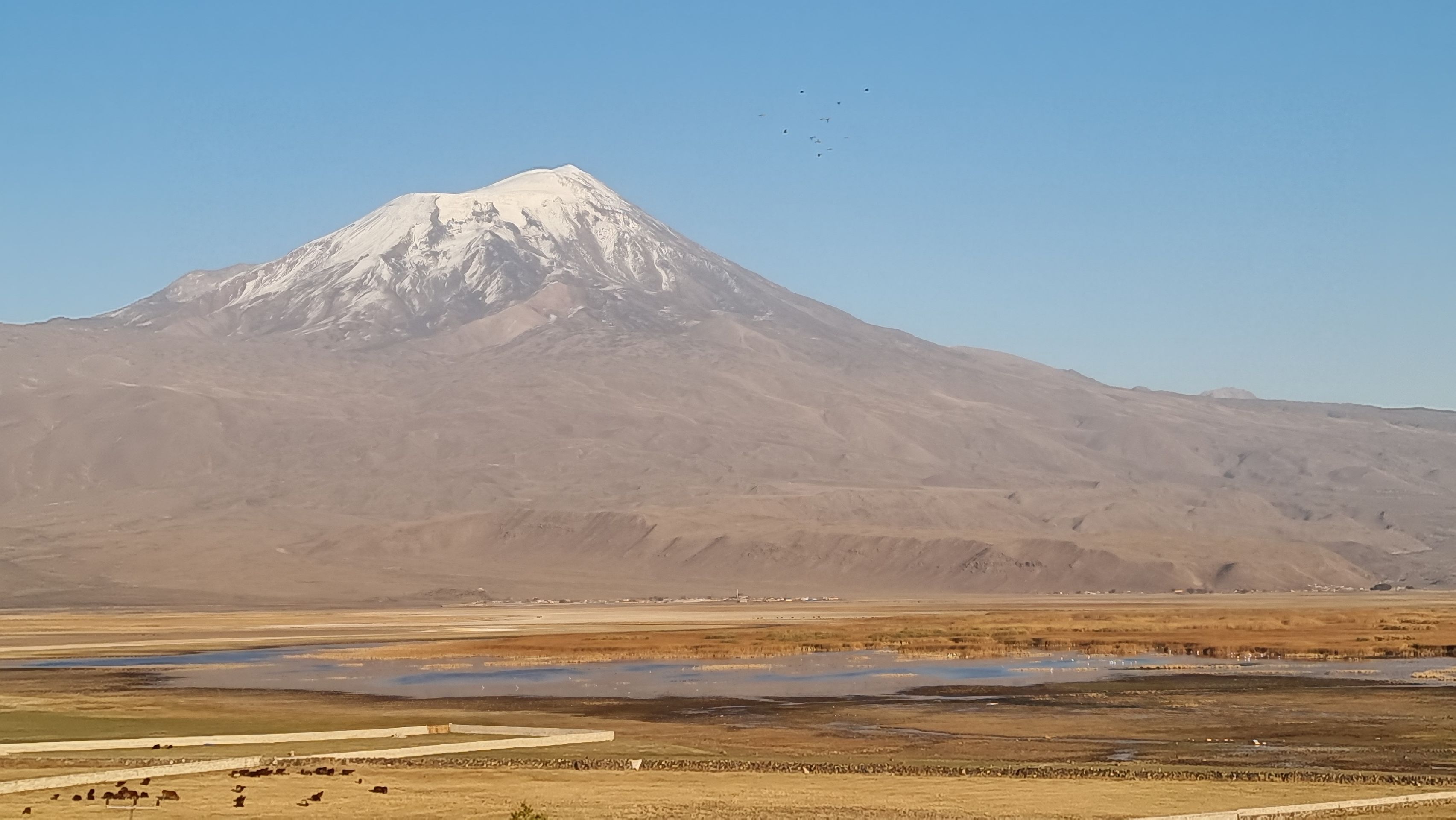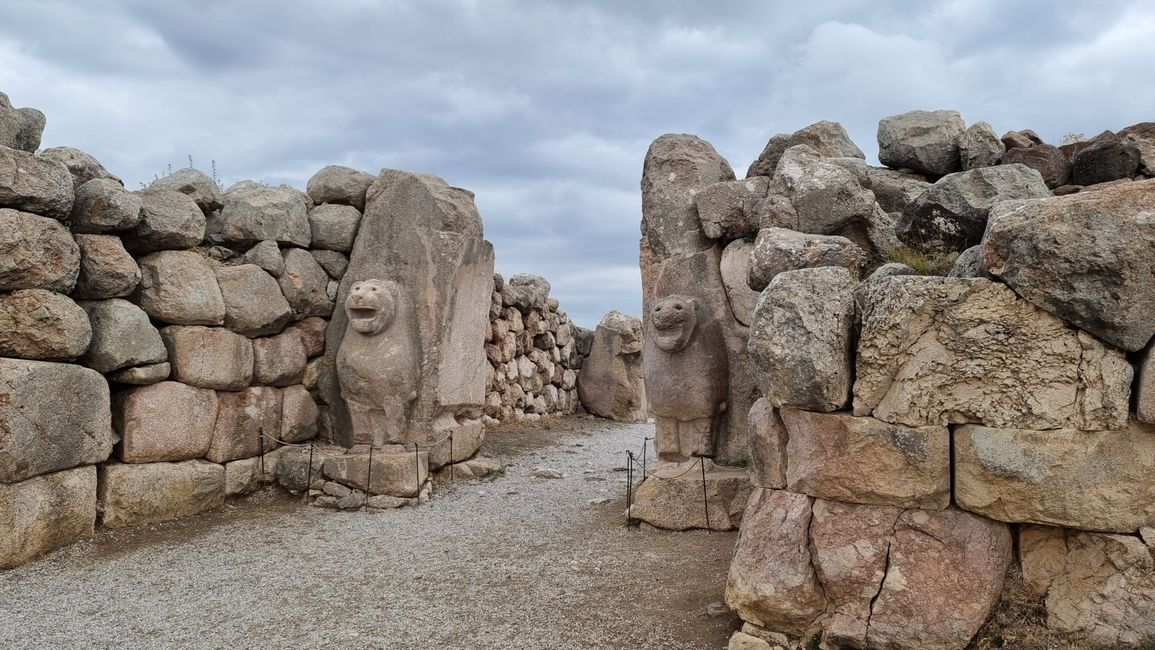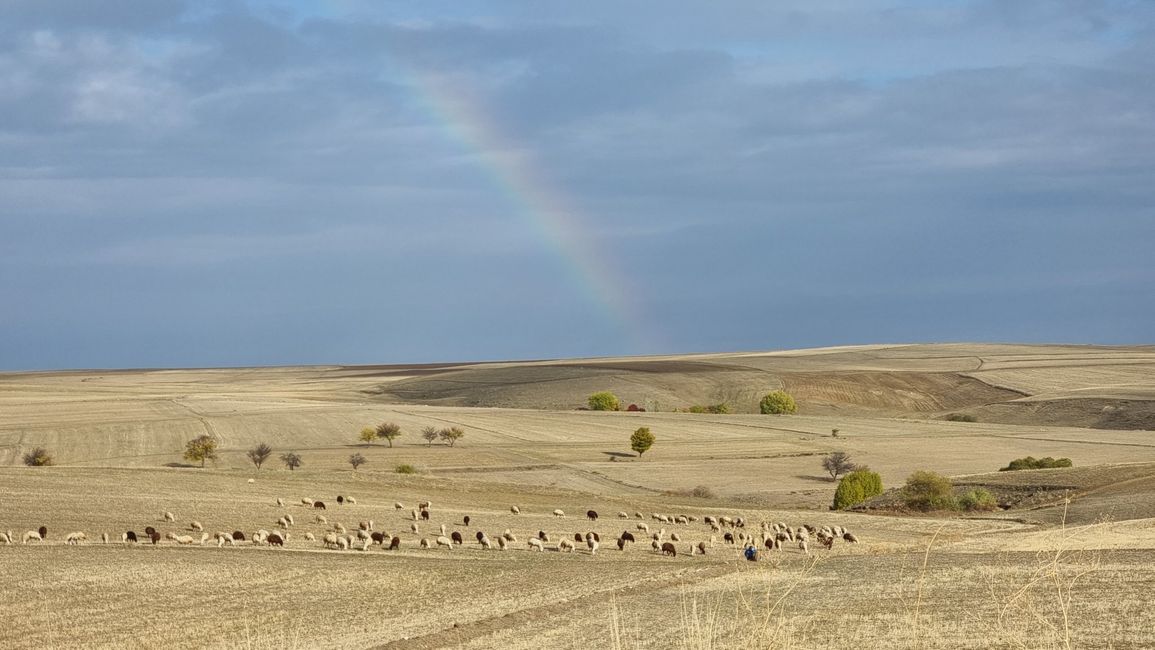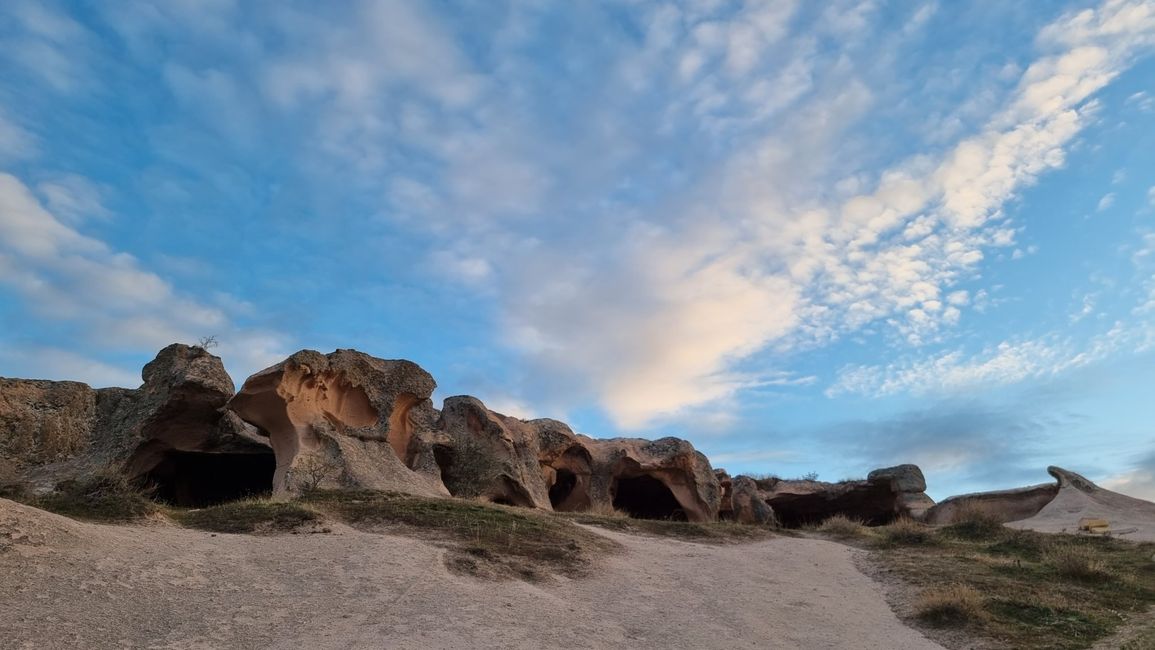Day 31 - Don Curry with the Hittites
Argitaratu: 02.11.2021
Don Curry is very interested in history, especially ancient cultures and the structures and art objects created by them. He was supposed to trace the footsteps of a particularly significant people of Anatolia's past today: Don Curry visited three important sites of the Hittite Empire.
First, he fortified himself for the time travel with a rather disappointing breakfast buffet at the Beyoglu Hotel. Then he drove about 150 km to the heartland of the former Hittite Empire. The village of Atalakhuyuk, which is located there today, was already inhabited by the Hatti people before the Hittites. Impressive ruins of a sphinx gate and many more ruins from the Hittites have been preserved, and at least a few burial objects from the Hatti people were displayed in the museum on the site.
Don Curry then moved on to Hattusha, the former capital of the Hittites. This city was so huge that it is visited by car today and covers a distance of about 7 km on the site - real drive-thru ruins. The powerful city wall on even more powerful earth mounds in the northern area was particularly well-preserved. Here, Don Curry was able to walk through an underground passage below the walls. In addition to the famous Lion Gate, he also discovered the Sphinx Gate and the King's Gate. Hattusha was also built in a very rocky area with significant height differences, so that there was a clear upper and lower town.
Not far from the capital lies Yazilikaya, a religious site of the Hittites. In two narrow valleys, they had carved life-sized reliefs of gods, kings, and other important figures into the walls. Here, Don Curry unintentionally got a guide who briefly explained the scenes depicted in a mixture of German and English, and then naturally lured Don Curry to his sales stand. The man carved miniature copies of the Hittite reliefs into black slate-like stones - quite tastefully. Don Curry knew what he was getting into when he was supposed to choose the most interesting stone for himself. And so, a sales conversation began. 'Actually, the stone costs 100 €, but today Don Curry could already have it for 80 €. Don Curry was naturally horrified by this high price, and the bargaining began. In the end, Don Curry got the good piece for 30 €, and the artist was satisfied.
Two more hours of driving lay ahead for Don Curry. In the city of Gulsehir, in the far northwest of Cappadocia, he wanted to visit a cave church and a rock landscape. Since it was already after 5:00 p.m., both were already closed. When Don Curry briefly stopped at the rock landscape, the ticket counter was indeed closed, but the landscape was freely accessible. So, in the soft evening light, Don Curry got a first taste of Cappadocian rock formations and cave dwellings.
Shortly after dark, he reached his hotel Anatolian Houses in Goreme, settled into his cave dwelling in a thick fairy chimney, and marveled at how much homeliness can be created in a rock. Only the lack of windows somewhat restricted his well-being, and he wondered if the cave dwellers of earlier times also had underfloor heating.
In the town of Goreme, he ordered an Ottoman skewer (spicy marinated chicken hack from the grill) with rice, various salads and sauces, a jug of water, and Coke Zero at one of the numerous restaurants and paid 5 € in the end. He briefly sat on the small terrace in front of his cave, where the beginning of this report was created, but in Cappadocia, too, the evenings cool down quickly. So, he retreated into his warm cave and lamented the Cappadocians, Hittites, and so many other people of earlier times who had to do so much more to cope with the cold.
Erantzun
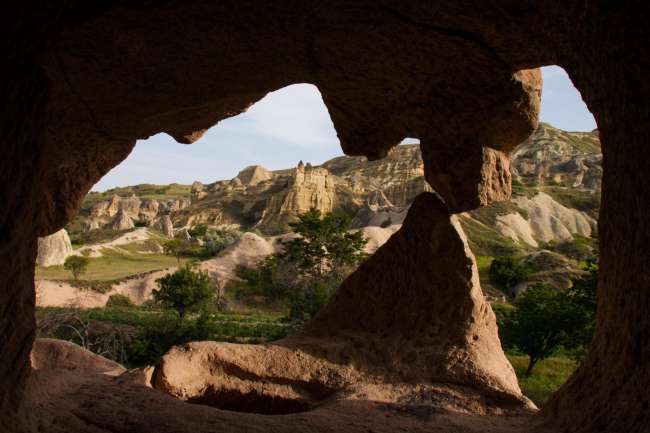
Bidaien txostenak Turkia
